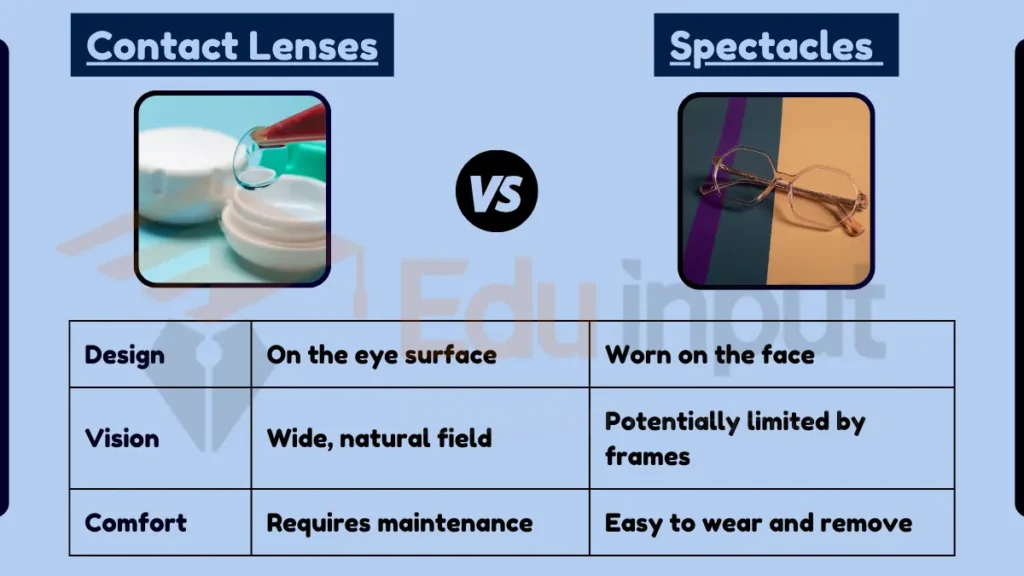Difference Between Contact Lenses and Spectacles
Key Difference
Contact lenses and spectacles are both optical aids used to correct vision impairments, but they differ significantly in design, wearability, and the overall user experience. Contact lenses are thin lenses placed directly on the surface of the eyes. They offer a natural field of view, no obstruction or reflections, and more freedom in physical activities.

Spectacles, or glasses, are eyewear with lenses held in frames that sit on the bridge of the nose and are supported by earpieces. They are easier to put on and take off, can be a fashion statement, and do not require direct contact with the eyes.
Comparative Analysis
- Design and Placement:
- Contact Lenses: Placed directly on the eye.
- Spectacles: Worn on the face, covering the eyes.
- Field of Vision:
- Contact Lenses: Unobstructed and wide.
- Spectacles: Can be limited by frames, potential for glare.
- Comfort and Convenience:
- Contact Lenses: Require adaptation, daily maintenance.
- Spectacles: Easier to wear and remove, but can be affected by weather conditions (like fogging).
- Aesthetic and Lifestyle Considerations:
- Contact Lenses: Invisible, suitable for active lifestyles.
- Spectacles: Can be a fashion accessory, vary in styles and designs.
- Eye Health:
- Contact Lenses: Risk of eye infections if not cared for properly.
- Spectacles: Generally safer, no direct contact with the eye.
Table Summary
| Feature | Contact Lenses | Spectacles |
|---|---|---|
| Design | On the eye surface | Worn on the face |
| Vision | Wide, natural field | Potentially limited by frames |
| Comfort | Requires maintenance | Easy to wear and remove |
| Aesthetics | Invisible, active lifestyles | Fashionable, diverse styles |
| Eye Health | Risk of infections | Safer, no eye contact |
The choice between contact lenses and spectacles depends on personal preferences, lifestyle, and comfort. Contact lenses offer a more natural vision experience and are ideal for those engaged in sports and physical activities, while spectacles are a practical choice that can also serve as a fashion statement. Each option has its own set of advantages and considerations regarding comfort, convenience, and eye health.



Leave a Reply